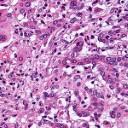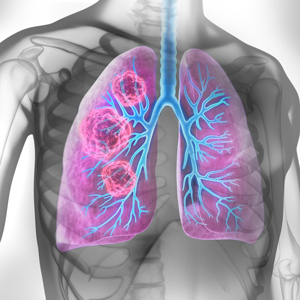-
August 28: The Week in Cancer News
ESMO issues guidance about biomarker testing, researchers break down coronavirus risk by cancer type, and the FDA approves liquid biopsy test across tumor types.
by Marci A. Landsmann
-
Support Grows for Making Transfusions a Part of Hospice
Blood cancer patients have low rates of enrollment in hospice. One barrier to enrollment is that many hospices do not provide blood transfusions.
by Jon Kelvey
-
August 21: The Week in Cancer News
A combination of targeted therapies may be effective in people with bile duct cancers, and recent chemotherapy is not associated with worse outcomes from COVID-19.
by Kate Yandell
-
A Missed Conversation
Despite national guidelines urging oncologists to bring up risks of infertility posed by cancer treatment, many young cancer patients are never told about these risks or counseled on their fertility preservation options.
by Marcus A. Banks
-
August 14: Week in Cancer News
Lung cancer death rates are on the decline, and a daughter mourns her mother's death from cancer during the pandemic.
by Marci A. Landsmann
-
Anal Cancer Diagnoses and Deaths Are Rising in the U.S.
Study underscores importance of early detection and prevention.
by Jane Langille
-
August 7: The Week in Cancer News
A study shows that new cancer diagnoses declined in March and April 2020, and the Food and Drug Administration approves a treatment for multiple myeloma.
by Kate Yandell
-
In It for the Long Haul
Doctors and researchers met online to discuss how the coronavirus pandemic changed cancer care in its early months, as well as how they can improve care and advocate for patients going forward.
by Kate Yandell
Cancer Talk
Physical Activity Linked to Lower Colon Cancer Recurrence
Participating in a structured exercise program after treatment was associated with a reduced risk of recurrence in people who had colon cancer.
by Sandra Gordon
Gaps in Survivorship Care Leave Unmet Needs After Cancer TreatmentA survey of head and neck cancer survivors reveals that many are not getting adequate survivorship care and may not even know it is available.
by Cameron Walker
Improving Communication for Deaf Cancer PatientsAfter a cancer diagnosis, people who are deaf or have hearing problems can struggle if accommodations don’t meet their communication needs.
by Eric Fitzsimmons
Is Immunotherapy Right for People Hospitalized With Advanced Cancer?Researchers find no evidence that immune checkpoint inhibitors benefit cancer patients getting inpatient care. They urge earlier consideration of palliative care.
by Kyle Bagenstose












